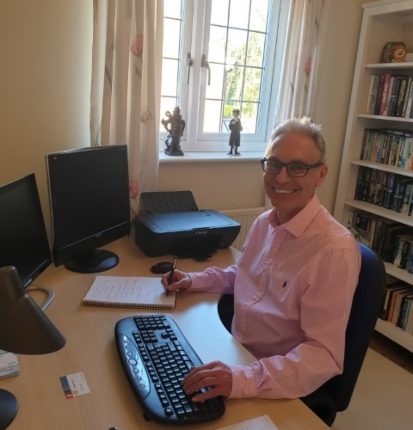Problems with Software Patenting
Dr Darren Murley has a PhD in Applied Physics and worked as a senior display scientist for five years. In that time he contributed to the invention of the OLED TV and became interested in the “suits” upstairs who were the in-house patent attorneys.
“I subsequently retrained as a British and European Patent Attorney for five years, which was not easy!”, he tells us. “I then worked for well-known corporate companies involving IPR Due Diligence in M&A deals, whilst also drafting, responding and advising existing clients.”
Darren now runs his own firm (EvokeIP.com) and specialises in advising on and protecting Software and AI inventions. Below, he shares some of his thoughts towards patenting software and the issues which come with it.
If you’re an inventor with an idea involving software, why is speed of the essence?
Software in nature is ever-changing and moves fast, but that doesn’t mean your patent attorney is not right there with you, making sure everything is right and on track.
The software industry differs from other major innovative industries; what unique issues can this present when trying to patent an invention?
Software, in my opinion, is the new technical glue that makes everything work and allows for effective communication, but software patents – which follow the same basic rules as other utility patents* – is difficult to prove as a novel and non-obvious invention.
Why some jurisdictions (such as the UK, US, CN) have problems with this has always baffled me. The most innovative, and by value the greatest companies are Apple, Facebook, Google. What is the common designator here? At base they are software companies.
Software has a shorter innovation cycle compared to other inventions – how does this impact start-ups/inventors? What should they consider when looking for protection with this in mind?
I have been fighting the good fight for software to be patentable, since 2003, as long as what it does is novel and inventive.
Some argue that to prevent patent trolls and promote true software innovation, the scope and length of software patent protection should be limited, e.g. allowing only the means of implementation but not the function to be patented[1]. Do you agree with this?
We have challenges with the “Alice” ruling** in the US now being applied to manufacturing. This is in my opinion, and in the opinion of my US colleagues, a worrying development.
Trolls or Non-Practising Entities (NPEs) are not solely related to software, and the law is gradually weeding them out.
Software Facts:
- *The USPTO has established five elements for patent eligibility: (1) The invention must be a process, machine, or object; (2) It must have utility; (3) It must be novel or new; (4) It must be non-obvious; and (5) It must not have been disclosed to the public before the patent application. An invention must qualify under all of these elements in order to move forward in the patent process[2].
- **Alice Corp. v. CLS Bank International was a 2014 decision of the United States Supreme Court about patent eligibility. The issue in the case was whether certain claims about a computer-implemented, electronic escrow service for facilitating financial transactions covered abstract ideas that were thus unsuitable to be patent protected. The court decided that the patents were invalid because the claims were drawn to an abstract idea, and implementing those claims on a computer was not enough to transform that idea into patentable subject matter[3].
- In the United States software is patentable. Software patents are typically referred to as computer implemented processes and can be protected in the US if it is unique and tied to a machine. For this to be the case, the software needs to offer some kind of identifiable improvement, however, US patent law also excludes “abstract ideas”, and this has been used to refuse some patent applications involving software[4].
Dr Darren Murley
Chartered British and European Patent Attorney (CPA, EPA)
Proprietor of EvokeIP
Tel: +44 7799 600 721
Dr Darren Murley started his career as an electronic engineer, gaining a first class degree in Physics with Digital Microelectronics. He then undertook a PhD, gaining his doctorate in plasma physics for semiconductor deposition. Following that, Darren was employed as a senior research display scientist with Philips, where he helped invent and patent OLED TV.
As an inventor, Darren subsequently became interested in Intellectual Property, and qualified as a British Chartered patent attorney and a European Patent Attorney.
Darren specialises in hi-tech semiconductor and computing systems, and regularly lectures in London on software patenting.
[1] https://link.springer.com/article/10.1007/s40319-019-00841-w
[2] https://www.inventorsdigest.com/articles/the-challenges-of-patenting-software/#:~:text=under%20Section%20101.-,%E2%80%9CSoftware%20is%20difficult%20to%20prove%20as%20novel%20and%20non%2Dobvious,not%20likely%20to%20be%20patentable.%E2%80%9D
[3] https://en.wikipedia.org/wiki/Alice_Corp._v._CLS_Bank_International
[4] https://milleripl.com/blogs/patents/is-software-protected-by-copyrights-or-patents




